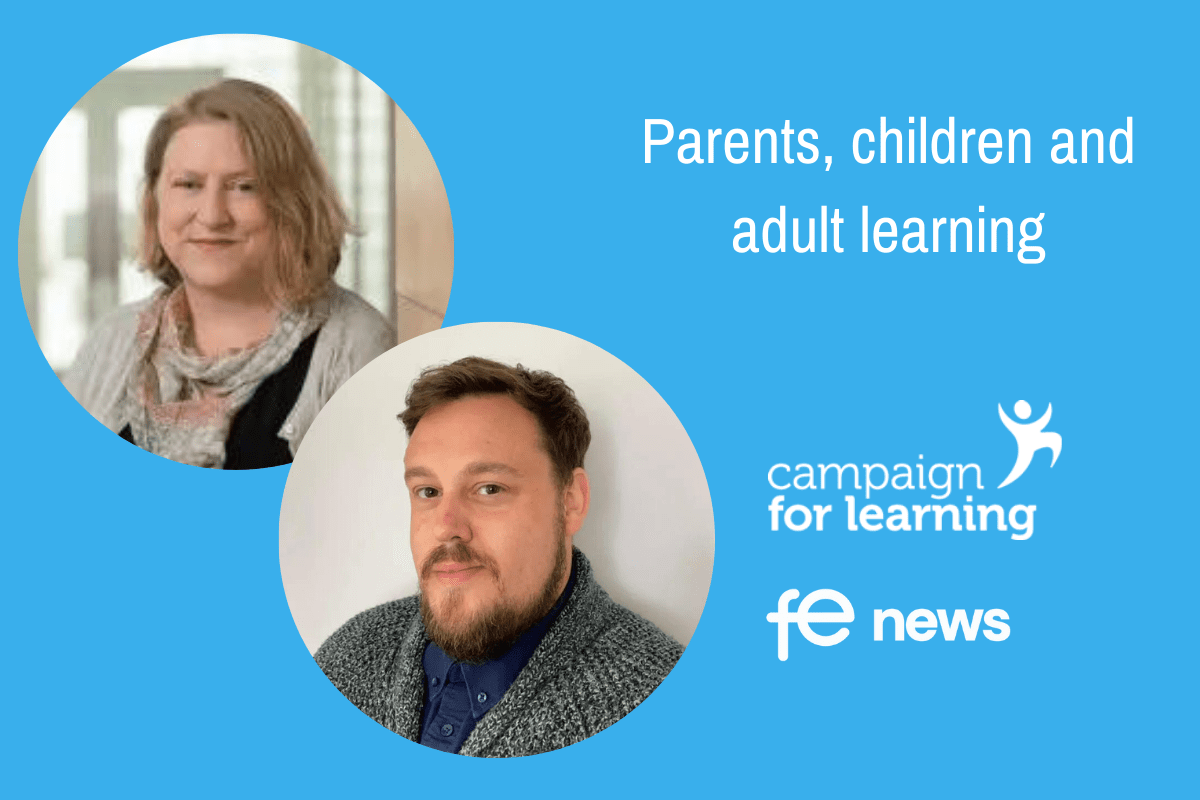Campaign for Learning Recommendations

Prioritising Family Learning
Families are the foundation for learning. They shape our aspirations and our ability to value and engage with learning. We know that the home learning environment has a significant impact on children’s achievement and that parents, carers and schools want to support their children’s learning, yet there is currently no formal infrastructure or coherent Government policies that support learning in families. If we are serious about social mobility, improving children’s achievement and developing adult skills then family learning must be prioritised.
Policy Development in England
For Family Learning Policy to climb the political agenda in England during the 2020s, Campaign for Learning proposes six recommendations.
- Recommendation 1:
Both national and local organisations working with families to support learning in England should come together to agree a definition of family learning to support the policy developments which are so urgently required.
One definition of family learning is as a parental engagement policy intervention. Another is a more specific definition as part of adult learning that includes dedicated family learning provision and parenting programmes. It can also be defined holistically to include informal learning opportunities, and intergenerational approaches which includes members of the extended or wider family. While elements of Family Learning are instinctually understood by most as learning that delivers learning outcomes for both the adult and the child, there is no agreed definition. We at Campaign for Learning believe in a unifying definition of Family Learning which covers these three elements – parental engagement, adult learning, and informal intergenerational learning. A unifying Family Learning definition will help bring together those working with or for families into a co-ordinated Family Learning sector, aiding campaigning for policy change and raising the profile of family learning policy and practice.
- Recommendation 2:
The full range of local stakeholders involved in family and learning policy must come together to create and facilitate sustainable Local Strategic Family Learning Networks in England.
Family learning takes place in multiple settings to varying degrees in every local community of England. Many, if not all, strategic Local Authorities in England will have some form of family learning provision, delivered through early years settings, schools, colleges and community education, as well as a range of family support services. There are also Children’s Centres, the newly formed Family Hubs, community groups, libraries, galleries, museums, heritage sites and multiple charities dedicated to engaging and supporting learning in families. All provide opportunities for families to learn. Local family facing organisations delivering family learning are diverse and will often have different priorities and outcome measures to achieve their goals. It is crucial that local strategic family learning networks are sufficiently resourced so that family learning can contribute to the levelling up agenda.
- Recommendation 3:
A National Strategic Family Learning Network in England should bring together key stakeholders to develop family learning policy recommendations to influence Government policy.
A truly comprehensive strategic network at national level will have the necessary capability to influence policy makers to ensure the strengthening of family learning policy in England to contribute to societal change. By developing a national and local engagement strategy, the National Strategic Family Learning Network will drive partnerships, cross-sector collaboration and innovative delivery. In this way, the engagement strategies of national and local networks will unlock the true potential of family learning. We call upon the Cabinet Office to nominate the Department for Education as the lead department for Family Learning in England and facilitator in terms of liaising with other relevant departments in Whitehall including the Department for Levelling Up, Housing and Communities, and the Department for Health and Social Care.
- Recommendation 4:
Researchers, stakeholders and funders need to work together to develop a strong research base of evidence-informed approaches in family learning.
While there is strong research guiding learning for children, young people and adults, and opportunities for parental engagement, there is no significant up to date research base underpinning Family Learning pedagogy, impact on parents, or their employment opportunities. A strong research base of evidence-informed approaches will allow for development and implementation of effective Family Learning methodologies and interventions. The Department for Education should convene a research symposium to discuss priorities for evidence-based family learning from 2023 onwards.
- Recommendation 5:
Every school with pre-16 pupils should have an effective parental engagement strategy to enable them to engage parents as equal and valued partners in learning, supported by local family learning providers. At the same time, school sixth forms, FE Colleges and work based learning providers should balance the growing independence of 16- 18 year olds with parental engagement to improve post-16 outcomes.
Schools are the experts in teaching and learning and delivering the school curriculum and parents are experts in understanding their children’s needs and circumstances. Both want the best outcomes for children and this shared motivation should create the context for effective partnerships around learning.
In practice, the pressures on schools and parents often lead to poor communication and tension; schools lack capacity and often do not prioritise building effective partnerships with parents despite the clear evidence base on parents’ influence on attendance, behaviour and achievement. The parents who could most benefit from support to create rich home learning environments for their children are also least likely to engage with schools, often due to their own negative associations with school, anxiety about their own skills, a lack of understanding of the importance of their role in supporting learning and pressures on time.
Family learning providers can create the bridge between school and the home learning environment. Schools do not need to deliver this themselves, but they must be able to create a context and a culture that welcomes parents as equal and valued partners in learning by developing an effective parental engagement strategy to promote inclusive family learning environments.
- Recommendation 6:
Family learning stakeholders should work with the Department for Education and strategic Local Authorities to ensure that Family Hubs in England have a central and significant role in the development and delivery of family learning, as well as national initiatives such as the new numeracy programme, Multiply.
It is imperative that the Department for Education harnesses the potential of Family Hubs in every area of England. In this way, Family Hubs can contribute to the delivery of national learning programmes to the benefit of every local community. Family Hubs represent the most positive development for the delivery of early interventions in over a decade. As Family Hubs become up and running, they should embrace and embed Family Learning as a pedagogical approach to delivering improved outcomes for families.
Policy Development in the Devolved Nations
Campaign for Learning believes that there is so much each of the devolved nations – Scotland, Wales, Northern Ireland and England – can learn from each other with respect to family learning policy and practice. We would want the National Strategic Family Learning Network in England to work closely with existing national partnerships in each of the devolved nations to put family learning where it belongs, which is at the top of the policy agenda.
By Juliette Collier, National Director, Campaign for Learning & John Beattie, Deputy Director (Families), Campaign for Learning
Read Campaign for Learning‘s press release here.
Parents, Children and Adult Learning: Family Learning Policy in the 2020s
Read previous articles here:
- Driving-Up Parental Engagement in Educational Catch-Up, Sam Freedman, Research Fellow, Institute for Government
- Focusing on Parents to Improve Social Mobility, Lee Elliot-Major, Professor of Social Mobility, University of Exeter
- Encouraging Parental Involvement in Children’s Learning Through School Communication, Adrian Burt, Founder, MarvellousMe
- Balancing Parental Support and Independence of 16-18 Year Olds in Further Education, Noni Csogor, Research and Policy Manager, Sixth Form Colleges Association
- Involving Parents and Guardians in Careers Support for 11-18 Year-Olds, Lesley Thain, Head of Career Programmes, Gatsby Foundation
- Enabling Parents to Get What They Need to Support Children to Learn, Kerry-Jane Packman, Executive Director, Parentkind
- Working with Parents in the Early Years to Get More Children School Ready, Louise Bazalgette, Deputy Director, Nesta
- Using Technology to Help Parents Bridge the Gap in Child Learning, Tom Harbour, Chief Executive, Learning with Parents
- Targeting Support at Carers to Improve the Educational Outcomes for Children in Care, Aoife O’Higgins , Director of Research, What Works for Children’s Social Care
- Supporting Parents to Build Children’s Financial Capability, Sarah Porretta, Insights Director, Money and Pensions Service
- Using Libraries to Support Literacy and Personal Development in Children and Young People, Christine Myhill, National Chair, ASCEL
- Enabling Parents and Children to Learn Together as Families, Katie Easey, Director of Education: Community Learning, WEA
- Reminding Policy Makers of the Benefits of Parents and Children Learning Together, Susannah Chambers, Independent Consultant
- Building Maths Confidence Through Family Learning, Professor Alison Clark-Wilson, Chair, and Lucy Davis, Chief Executive, Maths on Toast – the family maths charity
- Promoting Family Wellbeing Through Adult Learning, Nancy Hey, Chief Executive, What Works Centre for Wellbeing
- Placing Family Learning in the Context of a Wider Intergenerational Learning Strategy, Susan Pember, Policy Director, HOLEX
- Next Steps for Family Learning Policy in England in the 2020s: Campaign for Learning Recommendations, Juliette Collier, National Director and John Beattie, Deputy Director (Families), Campaign for Learning












Responses